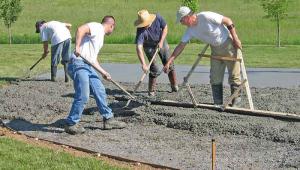Our local communities have for generations been shaped by the spaces around them, the assets on our doorsteps. These are generally in public or private hands – the local library and park, the village post office and pub. They are of vital relevance to people in the area, but are not always controlled by them.
But this is changing. Increasing numbers of these assets are passing into the hands of local people, who are bringing their expertise and knowledge to running their own services.
And the way communities work is changing too. The rise of community businesses as a vehicle for doing good – groups working with a local asset and re-investing any profits to generate more social impact – is a new way to approach civil society.
This is why we asked the New Local Government Network to dig into this more for us, looking at the public sector side of the equation. That analysis, into the way local authorities and community businesses work around asset transfers, is published today.
As one would expect, the local funding crisis is hastening the need for big thinking about the best way to use assets. The qualitative evidence is clear. In straitened times, it can be tough for council officials to resist the savings on offer if they get assets off their books.
It is to the credit of local authorities, then, that so many are trying to find a more strategic way forward with the communities they serve. One of the most cheering findings in the research is that decisions on assets are, for the most part, being made with long-term social good firmly in mind.
Nudging all parties towards slightly different ways of working will help, as will some new policy thinking. The priority for now should be on getting the information and infrastructure right. Throwing money at solutions probably won’t do much good until we understand what it is we are trying to solve.
Transparency is key, as it so often is. If local authorities aren’t good at communicating what they want from community groups—the very people who might take these assets off their hands – then they are probably storing up trouble. Equally, communities need to show that they are bringing some business savvy to what is likely to be a complex process. We found that many councils invest in renovating assets before handing them over, so they are entirely justified in wanting assurances that the community will take the lead from there.
So, as NLGN put it, local authorities have a role in ‘helping to raise those with good ideas up’. Quite right: asset transfer shouldn’t just be about giving away control of local assets, but also identifying the local groups which will make the greatest impact with these assets. It is through these groups that local authorities can help strengthen communities, another stated aim of asset transfer. It is a more patient process, but the long-term benefits are substantial.
On the policy side, two specific steps will help in the near future.
As the research found, there is no centralised database of all the latest developments in community asset transfers. The Department for Communities and Local Government holds a partial database, but local authorities and community businesses need more than this. Only a full, properly maintained log will guarantee policymakers have the information they need to get this right.
A related move would be for government to support local authorities, involving community groups if possible, to conduct an audit of community assets. Plans are already in place in some regions, but a comprehensive mapping of community-held assets across England would make it much easier for communities and local officials to learn from experience and share best practice. Community assets underpin the viability and stability of the growing community business market, something confirmed in our 2016 survey of that market, which will be published later this month.
Given the evidence of today’s report, the wonky world of community asset policy is going to become more and more relevant in the years ahead. Libraries, community halls, leisure centres and the like are going to move across into the hands of local people. We had better get it right.





















